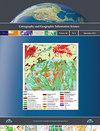在人道主义自愿地理信息(VGI)运动中使用游戏化来增加地图数据的生成
IF 2.4
3区 地球科学
Q1 GEOGRAPHY
Cartography and Geographic Information Science
Pub Date : 2023-01-02
DOI:10.1080/15230406.2022.2156389
引用次数: 2
摘要
摘要志愿地理信息(VGI)为解决权威地图数据中的不平等问题提供了一种解决方案,这些数据可能会限制我们对人道主义危机的反应。然而,地图数据的持续自愿贡献可能很困难,为鼓励持续自愿贡献而开发的混合机器学习VGI(ML-VGI)工作流程已被证明是不够的。游戏化可以用来鼓励志愿者绘制更长时间的地图,但很少有人评估游戏化以增加人道主义地图的贡献。在这里,我们开发了一个游戏化的人道主义ML-VGI地图平台(“Map Safari”),并评估了游戏元素的使用,以鼓励志愿者在不降低贡献质量的情况下持续贡献。我们的研究结果表明,游戏化使地图绘制变得更加有趣,尤其是对于第一次绘制地图的人来说,不会降低地图数据质量。事实证明,竞争对于鼓励玩家享受游戏元素和增加地图数据贡献非常重要。未来的游戏化地图平台应该强调竞争,并确保有足够的游戏元素让平台的使用感觉像游戏。这项研究表明,游戏化可以用来鼓励继续自愿提供地图数据,从而增加人道主义组织可获得的地图数据量。本文章由计算机程序翻译,如有差异,请以英文原文为准。
Using gamification to increase map data production during humanitarian volunteered geographic information (VGI) campaigns
ABSTRACT Volunteered geographic information (VGI) offers a solution to inequalities in authoritative map data that can limit our response to humanitarian crises. However, sustaining voluntary contributions of map data can be difficult and hybrid machine learning-VGI (ML-VGI) workflows developed to encourage sustained volunteer contributions have been demonstrated to be insufficient. Gamification can be used to encourage volunteers to map for longer, however evaluations of gamification to increase humanitarian mapping contributions are rare. Here we develop a gamified humanitarian ML-VGI mapping platform (“Map Safari”) and evaluate the use of game elements to encourage sustained volunteer contributions without reducing contribution quality. Our results suggest that gamification makes mapping more fun, particularly for first time mappers, without degrading map data quality. Competition is demonstrated to be important for encouraging enjoyment of game elements and increasing map data contributions. Future gamified mapping platforms should emphasize competition and ensure there are enough game elements to make platform use feel game-like. This research demonstrates that gamification can be used to encourage continued voluntary contributions of map data thereby increasing the amount of map data available to humanitarian organizations.
求助全文
通过发布文献求助,成功后即可免费获取论文全文。
去求助
来源期刊
CiteScore
5.20
自引率
20.00%
发文量
23
期刊介绍:
Cartography and Geographic Information Science (CaGIS) is the official publication of the Cartography and Geographic Information Society (CaGIS), a member organization of the American Congress on Surveying and Mapping (ACSM). The Cartography and Geographic Information Society supports research, education, and practices that improve the understanding, creation, analysis, and use of maps and geographic information. The society serves as a forum for the exchange of original concepts, techniques, approaches, and experiences by those who design, implement, and use geospatial technologies through the publication of authoritative articles and international papers.

 求助内容:
求助内容: 应助结果提醒方式:
应助结果提醒方式:


